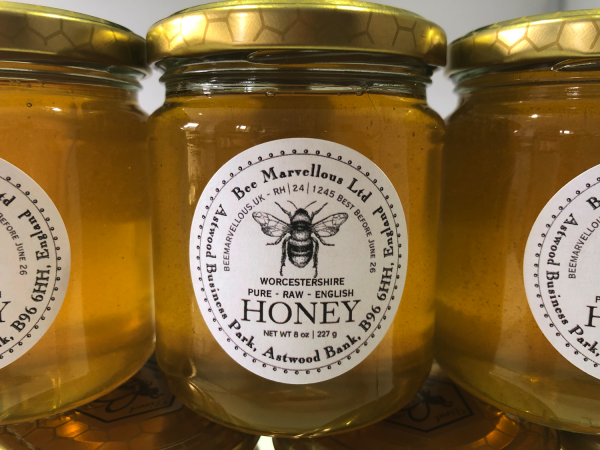
English honey, harvested directly from beehives across the UK without pasteurisation or heavy processing, retains its natural enzymes, pollen, and antioxidants. Cinnamon, derived from the inner bark of trees in the Cinnamomum genus, is available in two main varieties: Ceylon (often called “true” cinnamon) and Cassia (the more common, robust-flavoured type). When combined, this duo is frequently celebrated in traditional remedies for everything from boosting immunity to aiding weight management. While anecdotal evidence is plentiful, scientific research provides a more nuanced view, highlighting individual benefits that may synergise, though direct studies on the combination are limited. This article explores the evidence-based advantages, potential synergies, usage tips, and precautions, drawing from clinical reviews and studies.
The Individual Benefits of English Honey
English honey, often sourced from wildflowers, heather, or borage in the British countryside, stands out from regular, pasteurised honey due to its unheated state, preserving beneficial compounds like bee pollen, propolis, and enzymes. A typical tablespoon (21 grams) provides approximately 64 calories, 17 grams of sugar (mostly fructose), and trace amounts of vitamins, minerals, amino acids, and antioxidants such as flavonoids and ascorbic acid. Its composition varies depending on the floral source.
- Antioxidant Powerhouse: English honey is rich in phytochemicals and flavonoids that combat oxidative stress, potentially reducing the risk of chronic diseases like cancer. A comprehensive review of clinical research highlights its role in neutralising free radicals.
- Antibacterial and Antimicrobial Effects: Thanks to hydrogen peroxide, low pH, and glucose oxidase, English honey fights bacteria such as E. coli, Staphylococcus aureus, and Helicobacter pylori, making it a natural preservative and infection fighter.
- Wound Healing: Applied topically, English honey promotes healing for minor burns, cuts, and ulcers due to its anti-inflammatory and antibacterial properties. Clinical studies, including those on diabetes-related foot ulcers, support its efficacy in cleansing wounds and accelerating tissue repair.
- Cough and Respiratory Relief: Honey coats the throat, soothing irritation and suppressing coughs. Research shows it is as effective as some over-the-counter medications for upper respiratory infections, particularly in children over age 1.
- Digestive Support: It may shorten diarrhoea duration, especially when combined with rehydration therapies. A 2022 paediatric study found honey with zinc reduced symptoms in children.
- Brain and Neurological Health: Honey exhibits antidepressant, anticonvulsant, and anti-anxiety effects, potentially preventing memory disorders and protecting neurons from inflammation.
- Heart Health: Antioxidants in honey may lower LDL cholesterol, triglycerides, and blood pressure, reducing cardiovascular risk.
Compared to regular sugar, English honey has a lower glycaemic impact, making it preferable for blood sugar management, though it remains calorie-dense.
The Individual Benefits of Cinnamon
Cinnamon is low in calories but packed with bioactive compounds like cinnamaldehyde, which contribute to its anti-inflammatory and antioxidant properties. Nutritional highlights include manganese, calcium, and fibre in small amounts. Ceylon cinnamon is milder and lower in coumarin (a potential toxin), while Cassia is bolder and more affordable.
- Blood Sugar Regulation: Cinnamon improves insulin sensitivity and lowers fasting blood glucose, aiding type 2 diabetes management. A 2022 review of 23 studies confirmed its role in glucose and cholesterol control, with Cassia showing stronger effects.
- Weight Management: It may reduce body weight and BMI by influencing fat metabolism hormones. A 2022 meta-analysis found doses of 3 grams or more daily effective, while animal studies showed reduced fat accumulation.
- Cognitive Enhancement: Cinnamon could improve memory and learning by affecting brain pathways like GABA. A 2024 review of 40 studies (mostly animal) supported this, but human trials are limited.
- Heart Health: It lowers total cholesterol, LDL, and triglycerides while slightly raising HDL. Meta-analyses link it to reduced blood pressure and cardiovascular risk factors.
- Anti-Inflammatory and Antioxidant Effects: Compounds combat inflammation and free radicals, potentially easing conditions like arthritis or gastrointestinal issues, though evidence is preliminary.
Traditional uses extend to respiratory relief and digestion, with emerging research on brain function.
Synergistic Benefits: When English Honey and Cinnamon Team Up
While no large-scale studies directly test the honey-cinnamon combination, their individual properties suggest potential synergies. Both are antioxidant-rich, anti-inflammatory, and antimicrobial, amplifying effects in areas like:
- Heart Disease Prevention: English honey reduces LDL cholesterol by 6-11% and triglycerides by up to 11%, while cinnamon cuts total cholesterol by 16 mg/dL and triglycerides by 30 mg/dL. Together, they may lower blood pressure and inflammation, per meta-analyses and animal studies.
- Wound Healing and Skin Health: Honey’s antibacterial action pairs with cinnamon’s effects against resistant bacteria, aiding burns, acne, and infections. Test-tube studies support topical use, though human evidence is limited.
- Diabetes Management: Cinnamon boosts insulin sensitivity, and English honey has a milder blood sugar impact than sugar. Reviews indicate benefits for fasting glucose and cholesterol in diabetics.
- Immune Boost and Cold Relief: Their antioxidants and antibacterials may enhance immunity and soothe symptoms. Honey relieves coughs, while cinnamon thins mucus; a review notes potential for fighting cavities via Streptococcus mutans inhibition.
However, claims like miracle weight loss or curing cancer lack evidence—a fact-check deems many overstated, and no combination-specific trials exist.
| Benefit Category | English Honey Contribution | Cinnamon Contribution | Potential Synergy |
|---|---|---|---|
| Antioxidants & Immunity | High in flavonoids; fights oxidative stress | Polyphenols reduce inflammation | Enhanced protection against free radicals and infections |
| Blood Sugar Control | Lower GI than sugar; improves insulin response | Increases sensitivity; lowers fasting glucose | Better diabetes management with moderated intake |
| Heart Health | Lowers LDL and triglycerides | Reduces cholesterol and blood pressure | Comprehensive cardiovascular support |
| Wound & Skin Care | Antibacterial; promotes healing | Fights resistant bacteria | Improved topical efficacy for acne or wounds |
How to Incorporate English Honey and Cinnamon
- Daily Drink: Mix 1 teaspoon of English honey with 1/2 teaspoon of cinnamon in warm water or tea for a soothing beverage.
- Topical Application: Blend into a paste for skin masks or wound dressings (test for allergies first).
- Culinary Uses: Drizzle on yoghurt, porridge, or toast; use in baking for natural sweetness. Start with small doses (1-2 teaspoons of honey, 1/2-1 teaspoon of cinnamon daily) to assess tolerance.
Potential Risks and Precautions
Moderation is essential, as excesses can cause issues:
- English Honey Risks: Unsafe for infants under 1 due to botulism risk from Clostridium spores. Allergies to pollen may trigger wheezing, nausea, or anaphylaxis. It can raise blood sugar, so diabetics should monitor intake.
- Cinnamon Side Effects: Cassia contains coumarin, which in high doses (over 0.1 mg/kg body weight daily) may damage the liver. Other risks include mouth sores from cinnamaldehyde, low blood sugar (hypoglycaemia), allergic reactions, breathing issues if inhaled, and drug interactions (e.g., with diabetes or heart medicines).
- Combination Considerations: No major interactions reported, but consult a doctor if pregnant, on medications, or with liver issues. Opt for Ceylon cinnamon to minimise coumarin exposure.
Conclusion
English honey and cinnamon offer compelling individual benefits backed by studies, from antioxidant protection to blood sugar regulation, with promising synergies for heart health and immunity. However, they are not a “miracle cure”—many claims stem from tradition rather than rigorous trials, and direct evidence for the pair is limited. Incorporate them mindfully into a balanced diet, and always seek professional medical advice for health concerns. With their natural appeal and evidence-based benefits, this duo can enhance wellbeing when used wisely.
